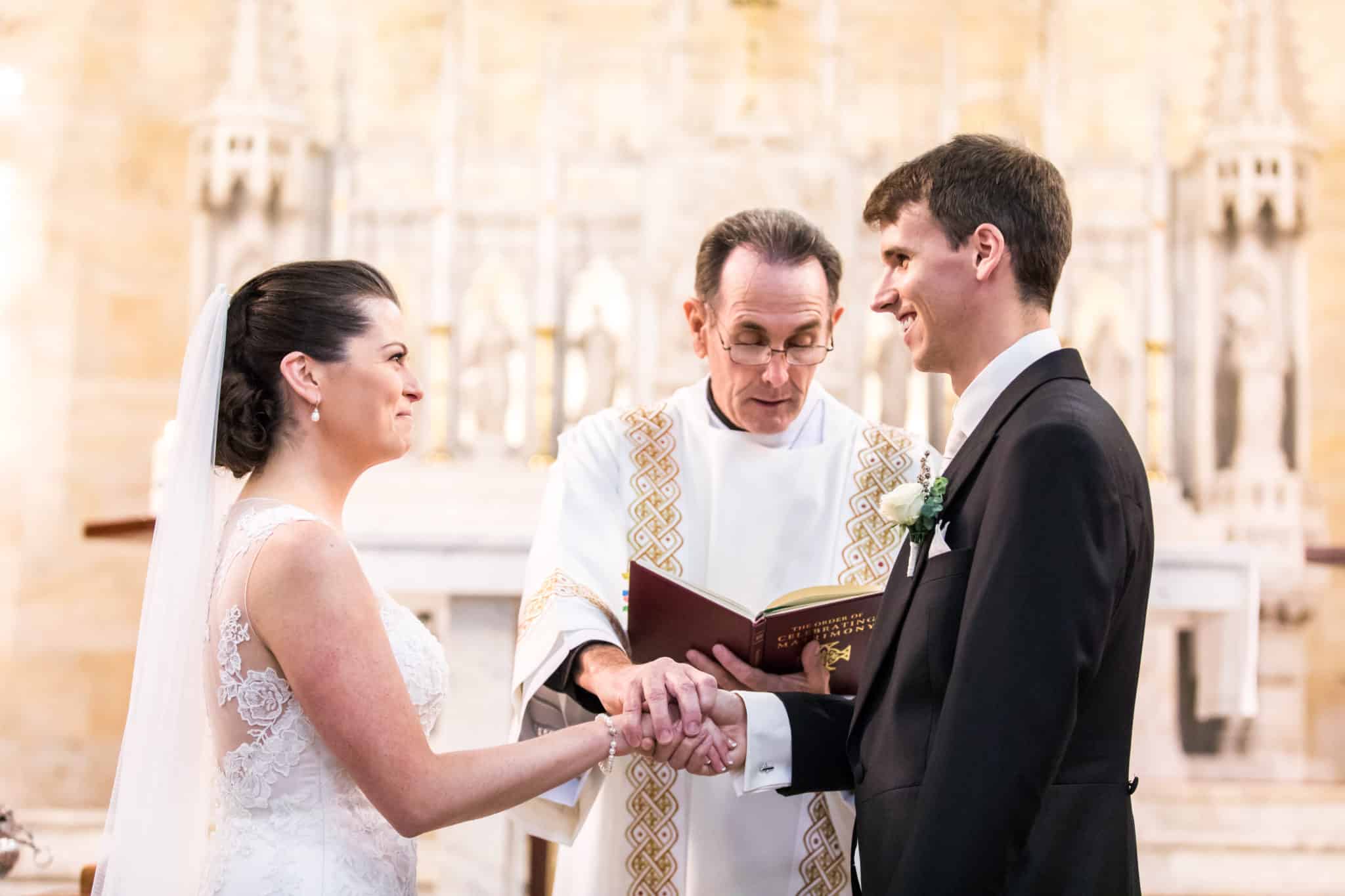
With a son and two nieces presently engaged, there’s a lot of conversation about weddings in our household. One of the things that has come up is the idea of “private vows” which, according to popular blogs, is trending.
The phenomenon of eloping to avoid the drama and cost of a big event is not a new idea. What is new, is having the big event, but exchanging vows separately in a smaller, more intimate, ceremony.
This usually happens in the weeks, or hours, preceding the “big” wedding event. In other cases, the couple may exchange vows in the presence of wedding guests but with mics off so that it is audible only to the couple, witnesses, and celebrant.
But are private vows a good idea? Let’s examine the sentiments behind the trend.
We observe couples having different motivations for seeking private vows including shyness, anxiety about imperfect recitation, or self-consciousness before in-laws. Or they may delight in creating a sense of mystery for their guests.
Whatever the reason, a common denominator is the recognition that the exchange of vows is fundamentally very significant, and implicitly more so than the reception or party that follows.
While a couple’s budget and attention are all too often skewed towards the party planning, the private vow trend gives a nod to the solemnity of the vow exchange.
However, the private vow trend also reflects the decline in understanding of the public role marriage. While marriage is very personal to the couple, it is also a public good.
For centuries, both governments and religions have regulated and registered marriages.
The primary reason is because of the capacity for male-female sexual relationships to produce offspring and the serious responsibilities involved in raising children.
The tradition of making public vows establishes in law and before God that the spouses have made a legally and morally binding agreement. The marriage vows come with obligations of care and grant protections to the spouses and their offspring.
A public wedding serves to rally community scrutiny and support. This accountability discourages harmful practices (such as underage or coerced marriage and incestual unions) and creates a culture of support during future tough times.
Another consideration is the implications for couples who desire a wedding celebration in locations other than a church or chapel. While couples may apply for a dispensation to have their Catholic wedding in their preferred location—like a beach, park, or vineyard—many opt for a civil wedding instead.
This is not ideal. Catholics are obliged by their baptism to marry in the Catholic tradition, or to have a dispensation from their bishop to marry in another religious tradition.
When their chosen location is impractical for the celebrant (e.g. remote destinations) or deemed unworthy of the dignity of the occasion (e.g. while skydiving), the private vow trend provides a possible work around.
What if such couples began their married life with a small gathering in their local Catholic church where they exchanged vows and formalised their union. They could then go on to celebrate their marriage with a renewal of vows—in whatever location, with any number of guests, with any wording they desire… and repeated as many times as they chose.
While the first exchange of vows before a priest or deacon establishes the marriage legally and canonically, why wait for 10 or 25 years to publicly renew or affirm them?
Because here’s the thing: Wedding vows are not meant to be once-and-done. Our vows should be regularly renewed – preferably daily. Establishing that principle from the get-go would benefit us all.
